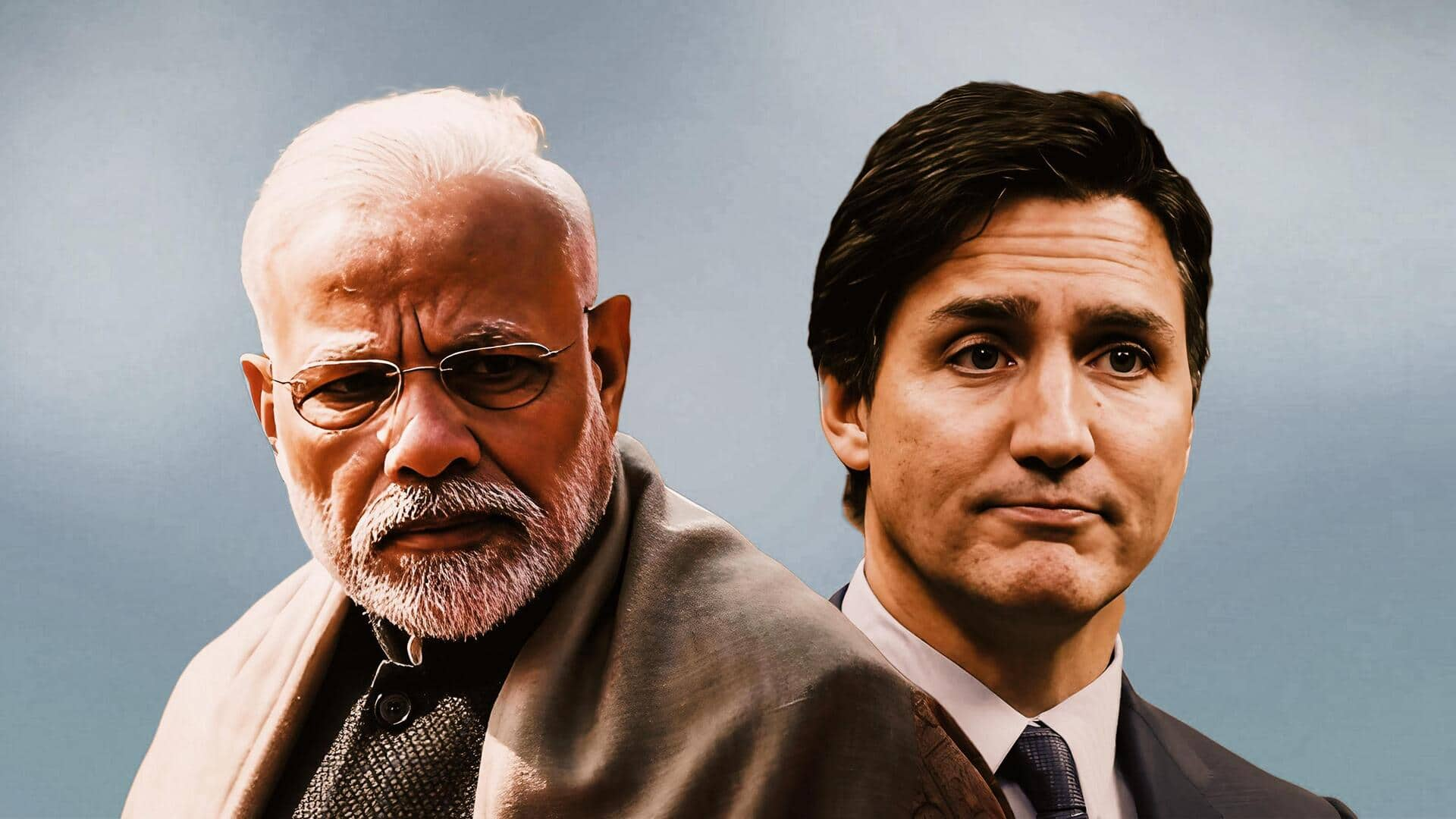
India-Canada ties turn 'worst-ever' over Khalistani issue: Report
What's the story
The relationship between India and Canada has turned into a "deep crisis," with some officials and experts calling it the "worst ever," per Reuters.
This comes nearly two months after Canadian Prime Minister Justin Trudeau claimed Indian agents' possible involvement in Khalistani terrorist Hardeep Singh Nijjar's June murder in Canada, which India outrightly denied.
Although India recently decided to partially restore visa services for Canadians, both sides reportedly lack strong incentives to speed up their return to normalcy.
Context
Why does this story matter?
Relations between India and Canada have been tense for some time due to the latter's alleged leniency toward Khalistani followers.
Trudeau then accused India of orchestrating Nijjar's assassination in Surrey, British Columbia, and expelled an Indian diplomat in September, exacerbating the situation.
In response, India dismissed the charges as "absurd and motivated" and expelled a Canadian envoy.
Subsequently, India suspended issuing new visas to Canadians, asking Ottawa to reduce its diplomatic presence. Last month, 41 Canadian envoys reportedly left India.
Details
No breakthrough after partial visa restoration: Experts
Amid the diplomatic slugfest and subsequent "secret talks," India partially resumed visa services, which raised some hope. However, experts claimed it didn't lead to any breakthrough.
Director of the South Asia Institute at the Wilson Center, Michael Kugelman, told Reuters, "The relationship is in deep crisis, perhaps its worst ever."
"Each side may have a strong interest in the crisis not getting completely out of control, but that doesn't mean there are strong incentives to resolve the crisis," he added.
What Next?
India-Canada relationship in 'de-escalation phase': Ex-envoy
Former Indian Ambassador to Canada, Ajay Bisaria, claimed the bilateral relationship was in a "de-escalation phase" after "quiet diplomacy."
India and Canada have strong people-to-people ties, with Canada having the largest Sikh population outside Punjab.
However, tensions over Sikh separatism have haunted the ties since the 1980s.
Prime Minister Narendra Modi, who leads the Indian government of the rightwing Bharatiya Janata Party (BJP), is unlikely to back down from his position before the upcoming 2024 Lok Sabha elections, per experts.
Facts
Impact on Indo-Pacific plans, free-trade deal
A foreign policy expert at the Atlantic Council, Michael Bociurkiw, reportedly said a pause was needed for "cooler heads to prevail" and for the bilateral relationship to get "back on track."
However, he observed that it would take time and won't happen overnight.
The strained relationships have delayed talks on a free-trade deal while also threatening Canada's Indo-Pacific ambitions, given India plays a critical role in the region, countering an increasingly assertive China.